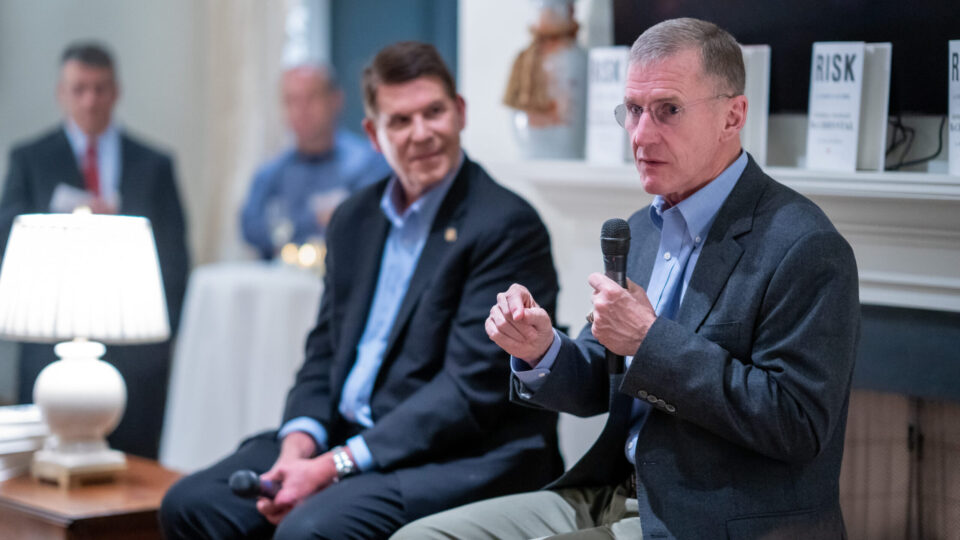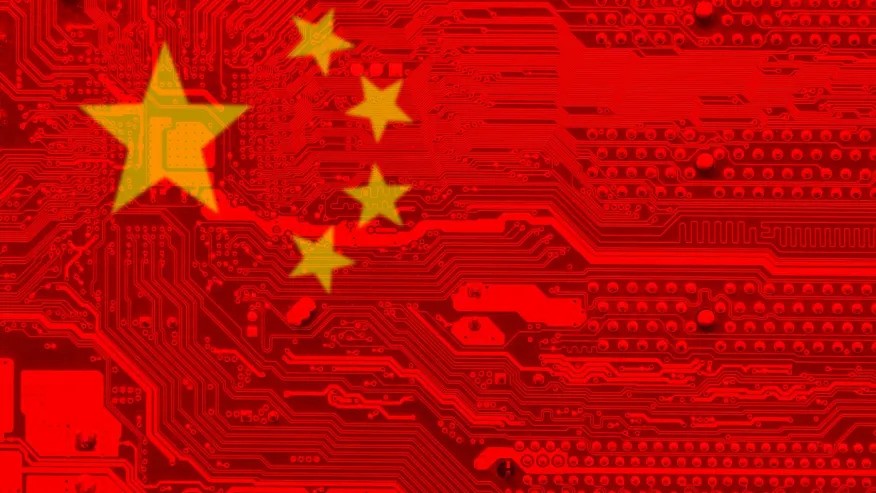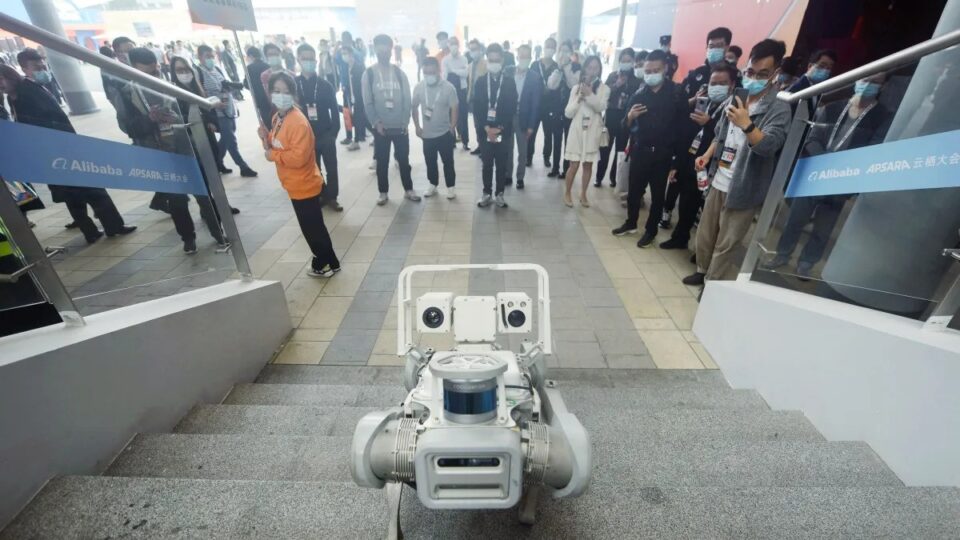C-SPAN Airs Tech-Statecraft Discussion Between Chairman Keith Krach and Gen. Stanley McChrystal
01.24.22

The Krach Institute for Tech Diplomacy at Purdue partners with the Bipartisan Policy Center on C-SPAN’s Broadcast of Mitigating Risk Through Trust
Washington, D.C., January 24, 2022 — C-SPAN’s BookTV broadcast Purdue’s Krach Institute for Tech Diplomacy co-founder and chairman Keith J. Krach’s conversation with fellow Advisory Board member Gen. Stanley McChrystal, author of the new book Risk: A User’s Guide, in partnership with the Bipartisan Policy Center. At Krach’s Washington, D.C. home, he teamed up again with Four-star Gen. Stanley McChrystal to look at 21st century threats on the 80th anniversary of the attack by the Japanese on Pearl Harbor.
McChrystal once commented when Krach was running DocuSign, “Keith Krach is one of the few leaders I’ve ever known in business that could put on a uniform tomorrow and would be effective as a general in the United States Army.” Krach went on to be unanimously confirmed as Under Secretary of State and led the Clean Network Alliance of Democracies, which united two-thirds of global GDP to defeat the Chinese Communist Party’s plans to dominate 5G.
Following the constructs and battle-tested strategies outlined in McChrystal’s User’s Guide on Risk and Krach’s Clean Network playbook, they discussed ways the U.S. government can better prepare for geopolitical risks in emerging technology sectors. The conversation focused on Tech-Statecraft, a new model of nonpartisan diplomacy based on trust principles that bridges the high-tech sector with foreign policy and national security constructs. This strategy focuses on rallying our allies, leveraging the innovation of the private sector, and amplifying democratic values based on trust.
Analyst Tom Romanoff said, “My overall takeaway is that trust is huge in a diplomatic sense and trust is a way forward for alliance building and is this sense of moving toward an interconnected system.”
In the conversation, McChrystal talked about how diversity of thought is needed to identify risks, just like when Krach paired foreign service officers with technologists in the private sector to address geopolitical challenges. “When you talk about marriage of the State Department and private sector, what I would argue you were first doing was you were eliminating blind spots. You were bringing in diversity, right?” McChrystal says.
“And that’s one of the things I learned in Silicon Valley is diversity of thought is a catalyst for genius,” Krach answers.
McChrystal recently joined the Krach Institute for Tech Diplomacy’s advisory board, in addition to former Defense Secretary Leon Panetta, NASA Chief Dr. Dan Goldin, Ambassador Robert Hormats, and other luminaries. They serve as key advisors to the leadership of the Krach Institute for Tech Diplomacy at Purdue, the world’s preeminent institution for securing freedom through tech diplomacy.
About the Krach Institute for Tech Diplomacy at Purdue:
The Krach Institute for Tech Diplomacy at Purdue is the world’s preeminent institution focused on Tech Statecraft, a new model of transformational diplomacy that integrates high-tech strategies with foreign policy and national security tools to ensure trusted technology is used to advance freedom.
The Institute’s nonpartisan model focuses on rallying U.S. allies, leveraging the innovation of the private sector, and amplifying democratic values based on trust, and it leverages Purdue University’s strength in innovation, deep expertise in technology, and global prowess in educating transformational leaders. The Institute’s Fellows have a battle-tested track record in building market-leading high-tech companies, onshoring strategic supply chains, building trusted global networks, architecting and operationalizing successful global economic security strategies, and applying Silicon Valley strategies to defeat the CCP’s 5G ambitions.
For more information, go to techdiplomacy.org, or follow the Krach Institute for Tech Diplomacy at Purdue on Twitter, LinkedIn, and YouTube.
The Institute’s nonpartisan work has been covered by The Washington Post, The Hill, and Harvard Business School, which published a case study on the impacts of nonpartisan technology diplomacy in the global-supply chain.
At the annual Concordia Summit in New York City (which runs parallel with the U.N. General Assembly annually), the Krach Institute for Tech Diplomacy chairman and co-founder Keith Krach gave the keynote remarks on the need to strengthen technology diplomacy. Also, Krach last month briefed the U.S. China Working Group, a bipartisan group of lawmakers on Capitol Hill who meet privately to address national security issues pertaining to China.

